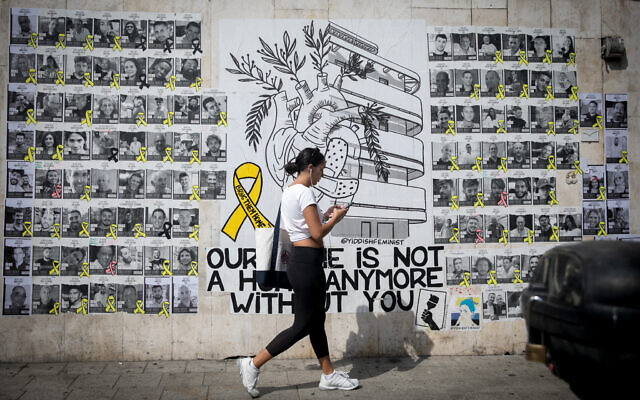



Ismail Haniyeh, the leader of the Palestinian Islamist terrorist group Hamas, said Tuesday, following the death of his sister and other relatives in an alleged Israeli strike, that any deal that does not guarantee a ceasefire and an end to Israel’s offensive in Gaza was “not an agreement.”
“If [Israel] thinks targeting my family will change our position or that of the resistance, they are delusional,” the statement said.
Haniyeh’s comments come after Prime Minister Benjamin Netanyahu said in an interview on Sunday that Israel would not agree to a permanent ceasefire.
Netanyahu’s comments appeared to contradict the terms of Israel’s latest ceasefire and hostage deal proposal, some of whose details were presented by US President Joe Biden last month, which reportedly provides for a temporary ceasefire in the first phase of the deal, to be extended into “a sustainable calm (cessation of military operations and hostilities permanently)” in the second phase.
However, Netanyahu has repeatedly denied that the proposal provides for ending the war before Israel achieves its two declared goals of destroying Hamas and bringing home all the hostages.
Hamas said an Israeli airstrike early Tuesday killed 10 family members of its Qatar-based chief, who vowed to continue the “resistance” movement against Israel.
Israel’s military, which is on a campaign to destroy Hamas since its devastating October 7 attack, told AFP that it “was aware of the reports but we cannot confirm” them.
The strike hit the Haniyeh family home in the Shati refugee camp in northern Gaza, Hamas’s civil defense agency said.
“There are 10 martyrs… as a result of the strike, including Zahr Haniyeh, sister of Hamas political bureau chief Ismail Haniyeh,” Mahmud Basal, spokesman for the civil defense, told AFP.
He said a number of bodies were likely to be still under the rubble but “we do not have the necessary equipment” to extract them.
Civil defense crews transferred the retrieved bodies to Al-Ahli hospital in nearby Gaza City, Basal added, also reporting “several wounded” in the attack.
In a statement, Hamas named the Haniyeh family home as having been bombed in a list of “massacres” it said were committed by Israel in the Palestinian territory.
It said it showed Israel “continues to defy all international laws, human norms and values by deliberately targeting innocent civilians and committing the most horrific massacres against them.”
In a separate statement later on Tuesday, Haniyeh said the deaths of his relatives would not deter the group in any way.
“The blood of our martyrs demands that we do not compromise, that we do not change, that we do not weaken, but that we continue on our path with determination.”
Haniyeh lost three sons and four grandchildren in an Israeli strike in April in central Gaza, with the military accusing them of terrorist activities.
Haniyeh at the time said that some 60 members of his family had been killed since the war broke out on October 7.
The war began with Hamas’s unprecedented attack on southern Israel in which terrorists massacred some 1,200 people, mostly civilians, and took 251 hostages.
The Hamas-run Gaza health ministry says more than 37,500 people in the Strip have been killed or are presumed dead in the fighting so far, though the toll cannot be verified and does not differentiate between civilians and fighters. Israel says it has killed some 15,000 combatants in battle and some 1,000 terrorists inside Israel during the October 7 attack.
It is believed that 116 hostages remain in Gaza — though many of them are thought to be dead — after 105 civilians were released from Hamas captivity during a weeklong truce in late November, and four hostages were released prior to that. Seven hostages have been rescued by troops alive, and the bodies of 19 hostages have also been recovered, including three mistakenly killed by the military.
The IDF has confirmed the deaths of 42 of those still held by Hamas, citing new intelligence and findings obtained by troops operating in Gaza.



